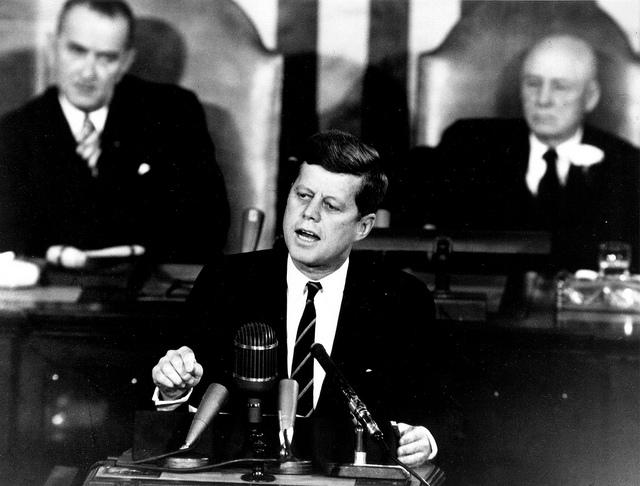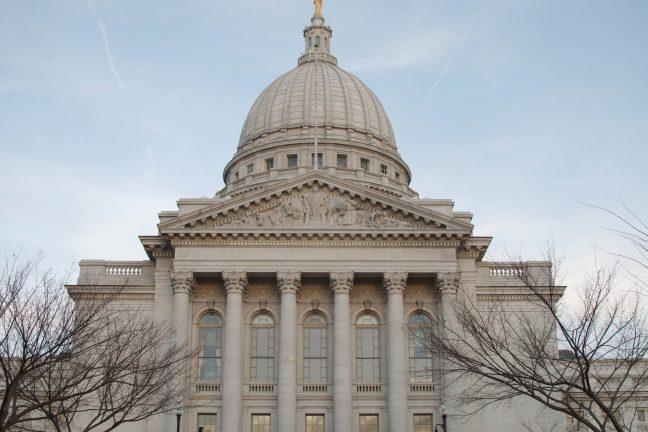November 22 will forever be etched into America’s memory for the assassination of President John Fitzgerald Kennedy in 1963. Ever since his death, Kennedy has been one of the easiest presidents to remember. A charismatic leader with big goals for the U.S., we will always wonder what could’ve been had Camelot continued. The answer might surprise many modern Democrats.
Following his assassination, the Kennedy family began to shape the popular image of JFK. This was done partly to help his younger brother Robert F. Kennedy during his bid for president in 1968. Many Americans love to compare our modern presidents with Kennedy. He routinely leads in public opinion polls asking who was the greatest president, surpassing more accomplished leaders like former presidents Abraham Lincoln, Franklin D. Roosevelt and Ronald Reagan. The JFK myths remain alive and well, but with every decade that passes, it’s worth re-examining who John F. Kennedy actually was and what he stood for.
Today’s Democrats might find it surprising that JFK was a supply-sider. He was partly elected due to slow growth under Dwight Eisenhower. In the 1950s, the United States had a 91 percent top income tax rate. In a speech to Congress in January 1963, he said the high tax burden was an “unrealistically heavy drag…on private purchasing power, initiative, and incentive.” He knew the best way for the government to raise growth was to get it out of the way and let the private sector do what it does best.
Kennedy didn’t live to see his tax cut get implemented, but the Revenue Act of 1964 did everything he anticipated. According to economic historian Brian Domitrovic, JFK’s economic policies brought unemployment below four percent, created 13 million jobs and economic growth of 48 percent over eight years. The economy had been sluggish in the 1950s, but Kennedy made certain it was bustling in the 1960s.
Kennedy also stressed the need for a balanced budget even while calling for tax reductions. In a speech to the Associated Business Publications Conference during the 1960 campaign, he said, “We should seek a balanced budget over the course of the business cycle with surpluses during good times more than offsetting the deficits which may be incurred during slumps. I submit that this is not a radical fiscal policy. It is a conservative policy.”
Even though income taxes were cut by 20 percent for all taxpayers, revenue went up thanks to the swift economic growth. Domitrovic found that federal receipts increased by 55 percent in real terms during the 1960s. In his analysis of the Kennedy tax cut, economist Arthur B. Laffer notes that the federal government’s income tax revenue increased by an average annual rate of 8.6 percent over the four years following its implementation, compared to a small increase of only 2.1 percent prior.
On foreign policy, Kennedy believed the U.S. had to take an active role in the world. His foreign policy was hawkish from the beginning, starting with the Bay of Pigs invasion and continuing with American intervention in South Vietnam and the Cuban Missile Crisis. JFK would routinely stress the need for a military buildup.
On March 28, 1961, Kennedy gave a special message to Congress calling for an increase of $650 million for the defense budget. He declared that “any potential aggressor contemplating an attack on any part of the Free World with any kind of weapons, conventional or nuclear, must know that our response will be suitable, selective, swift and effective. While he may be uncertain of its exact nature and location, there must be no uncertainty about our determination and capacity to take whatever steps are necessary to meet our obligations.”
Republican economic policies result in statewide growth in a way liberal policies cannot
At a speech in November 1961 in Los Angeles, he informed his supporters that the administration “developed five additional combat divisions” and “will have a substantially increased number of Polaris submarines by 1963 and 1964 than we would have had.” In terms of the space race, Kennedy said he did not “believe that we want to permit the Soviet Union to dominate space, with all that it might mean to our peace and security in coming years.”
Under Kennedy, defense spending would increase from $64.54 billion in 1961 to $69.99 billion in 1963. The number of active-duty military personnel would increase by about 200,000 from 1961 to 1963. He bolstered old allies and aligned the U.S. with new ones like Israel, ending an arms embargo and selling them surface-to-air missiles for protection.
While John F. Kennedy would make many conservatives proud, he would not entirely fit into the modern Republican mold today. For example, he supported raising the minimum wage and federal grants for more projects in rural areas. Additionally, the debate over his ideology is somewhat muddled by the shifting definitions of what conservatism and liberalism were.
Even so, Kennedy’s record looks more like that of a modern political conservative than a liberal. If he returned to see the Democratic Party of 2017, he would find it unrecognizable from his party in 1963. The key policies he held dear have been extinguished by Democrats today.
John Graber ([email protected]) is a senior majoring in history and political science.




















